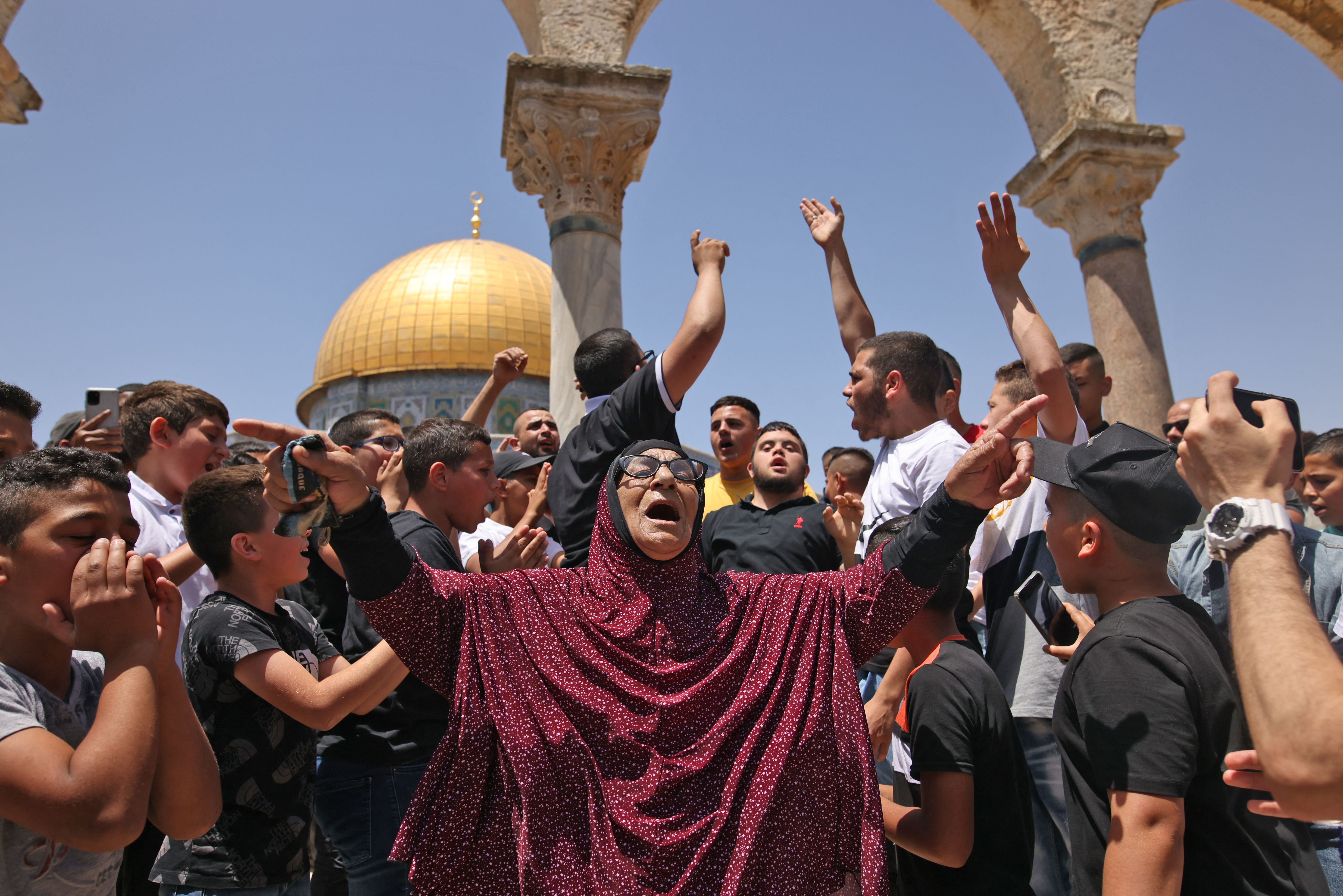Equal rights under the law are the foundation stone for good governance – Israel seems to have forgotten this
Israel has always seen itself as a beacon of freedom and democracy in the Middle East. But the interpretation and application of law are being skewed to try and protect the interests of one community only, writes Dominic Grieve


Last week, the Balfour Project, a charity dedicated to acknowledging Britain’s continuing responsibility to uphold equal rights for both the Israeli and Palestinian peoples living on the territory of the former British mandate territory, held a conference.
Planned some time ago, it coincided with the end of yet another cycle of violence that has seen the deaths of many innocent Palestinians in Gaza, as well as of Israeli civilians. Equally tellingly, this conflict has been marked by protests from sections of the Palestinian Arab minority in Israel against both its government’s actions in Jerusalem and Gaza and the discrimination that makes them, in their own eyes, second class citizens. This was responded to with violence by some extremists from the Israeli majority community.
The theme of our conference was the principles of the rule of law that, in theory, both sides claim to respect and how they might be used to achieve a peaceful solution to the conflict. We were fortunate to have the participation of distinguished speakers such as Baroness Hale and Jack Straw, as well as human rights lawyers from Britain, Israel and the Occupied Palestinian Territories.
In western democracies, equal rights under the law are rightly seen as the foundation stone for good governance. Without this, democracies can act as tyrannically as any dictatorship, if the majority wills it. Israel, with a pluralist multi-party democracy and highly regarded senior judiciary, has always seen itself as a beacon of freedom and democracy in the Middle East. But as we discussed at the conference, this standing is being undermined by its behaviour both in the occupied Palestinian Territories and within Israel itself.
The world agrees that the Geneva Conventions apply in the Occupied Palestinian Territories. However, the Israeli government, although a signatory, disapplies them there. By facilitating settlements, it uses military law to enforce systematic inequality which in turn is breeding radicalisation and insecurity, as is the continued closure of Gaza, now in its 14th year, which has the character of a form of collective punishment prohibited by international law.
Quite apart from its impact on those affected, it is also, as was highlighted by Israeli human rights lawyers, damaging the morality of those tasked with enforcing it. Boris Johnson, when foreign secretary, told Benjamin Netanyahu that “you either have a two state solution or some kind of apartheid system”. The evidence presented to us from NGOs, such as B’Tselem and Human Rights Watch, is that apartheid on a systemic basis is the outcome that Israeli policy is creating, even if it was not an overarching intention to do so.
Furthermore, the Knesset’s adoption in 2018 of its Nation State Law reserves the right of self determination in the whole of former British mandate Palestine exclusively for Jews. This means that even within its recognised 1948 boundaries, it has discriminatory impact on Arab Israeli citizens. One participant at the conference explained that, as an Israeli Arab Palestinian living temporarily in London, he has no possibility of taking his British Palestinian wife back to live in Israel, but an Israeli Jew can bring in a foreign Jewish wife from anywhere without difficulty. This appears incompatible with Israel’s 1948 Declaration of Independence that is supposed to guarantee social and political rights to all regardless of creed, race or sex.
The interpretation and application of law are being skewed to try and protect the interests of one community only. It is this which underlies the Israeli government’s actions in East Jerusalem in favouring previous Jewish residents’ rights over those of Palestinians and which triggered the latest round of violence.
Israel undoubtedly faces a dilemma as to how to move to a peaceful resolution of its confrontation with the Palestinian community in the Occupied Territories. The Palestinian leadership has often disappointed its own people. It suffers from corruption and a lack of accountability, as shown by the recent postponement of elections. It struggles to create an independent judiciary. Its failures provide a fertile ground for violence from those despairing of positive progress in the peace process. The foreign office’s insistence that elections should be swiftly rescheduled across the Occupied Territories and that Palestinians in East Jerusalem should be allowed to vote is to be commended.
The conference was centred on trying to get beyond analysis to finding a way forward. Central to that is insistence on equal rights for all in Israel and Palestine and the recognition of Palestine as a state, which is the only possible rational expression of the two state solution the UK and the international community have consistently supported.
Recognition of a state does not imply approval of every aspect of its governance. But it does provide a key building block to stopping the current slide to a single state based on systemic discriminatory practices against Palestinian inhabitants. It is in Israel’s own best interests that it should listen to its friends on this.
Dominic Grieve QC is a former Conservative MP for Beaconsfield and former attorney general



Join our commenting forum
Join thought-provoking conversations, follow other Independent readers and see their replies
Comments